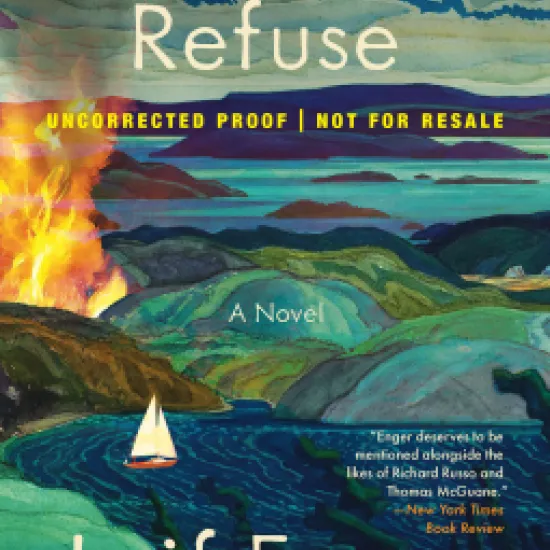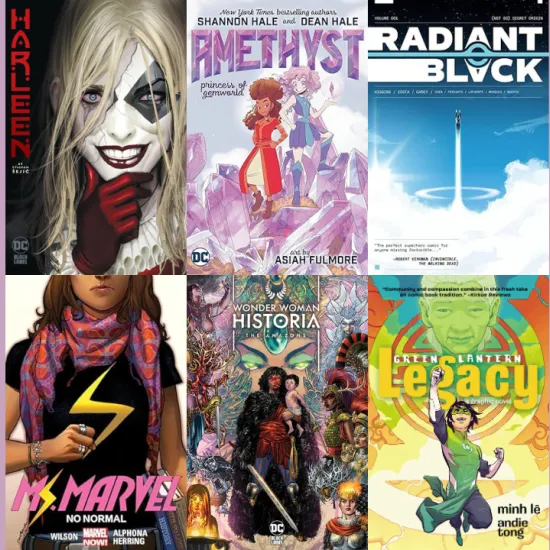- Wednesday, March 16, 2022
Recently there has been an increase in attempts to remove certain books from school and public libraries. The list of challenged books is extensive and varied, the majority are on the list for LGBTQ+ themes and representation. (At certain points, we will also use the term “queer” to honor self-identifications, as it has been widely reclaimed by the LGBTQ+ community.) While this is being presented as a difference of opinion and in the interests of children’s safety, library professionals must view these calls in the context of our role as a resource for the entire community. We are duty-bound to combat the erasure of experiences, beliefs, and stories.
In November 2021, the American Library Association published a statement reinforcing their commitment to “the freedom to speak, the freedom to publish, and the freedom to read, as promised by the First Amendment of the Constitution of the United States” for library users of all ages. Richland Library’s diversity statement “affirm[s] and acknowledge[s] our responsibility as an inclusive public organization by providing safe spaces where ALL PEOPLE can connect, thrive and belong.” Any person entering a library has the right to feel welcome, to see themselves reflected in materials staff provide. Libraries are also dedicated to fostering an environment where our younger customers can learn and grow safely.
We are duty-bound to combat the erasure of experiences, beliefs, and stories.
Growing up involves experiences both familiar and strange; the information available to us affects how we deal with these experiences. Stories are one of the most powerful tools we use to make decisions and develop our beliefs. Across all forms of media, certain stories become dominant narratives – what's good or bad, helpful or harmful, credible or suspect. For some children, the dominant narratives provide role models, fictional or real, that line up with their own experiences. These children don’t have to work very hard to find places where they belong. Some children, however, won’t see themselves reflected in dominant narratives. When the absence of inclusive stories is the result of conscious choice within the community, the message is clear: “You don't belong.”
From countless sources, we know that acceptance is a life preserver for LGBTQ+ youth:
- Studies on self-harm in transgender people show acceptance is the great buffer between growing up healthy and growing up isolated and fearful.
- Accounts from the LGBTQ+ community, including teens, show that positive representation in media can make the difference between life and death.
- In 2019, The Trevor Project reported that “LGBTQ youth who report having at least one accepting adult were 40% less likely to report a suicide attempt in the past year.”
When young LGBTQ+ people lack positive role models and stories, they are left with narratives that predict their suffering or ignore their existence entirely. Straight peers and caregivers get the same incomplete picture. In worse cases, stories portray queerness as inherently predatory or infectious. It is not difficult to imagine the harm caused to LGBTQ+ people when society systematically targets, rejects, and banishes them. When we remove narratives about targeted people, we erase them. When we include, invest in, and celebrate LGBTQ+ stories, we give all children better maps for understanding themselves and the people around them.
Children, meaning anyone from a newborn to a high school senior, can be part of the LGBTQ+ community in a variety of ways, such as growing up with same-gender parents or identifying their own gender or sexuality as queer. Despite the growing amount of popular media with positive LGBTQ+ stories, young people often face challenges when sharing their gender or sexuality with people around them. Studies have shown that coming out is a lifelong process; conversations, challenges, or breakthroughs can be repetitive and cyclical. Just like books about getting a younger sibling or transitioning to high school, literature by authors who have navigated the coming out journey can serve as a map for the next LGBTQ+ generation.
For years, tragedy dominated LGBTQ+ literature. The decision to end same-gender relationships with the death of one participant is so common that it is known as the “bury your gays” trope. According to a 2017 study, “bury your gays” began as a subversive practice by LGBTQ+ authors to evade backlash or criminal charges. In recent decades, straight writers disproportionately kill LGBTQ+ characters, particularly women and often at the most gut-wrenching point in their arc. Annie Proulx’s Brokeback Mountain is an example of pain overtaking a romantic story: two male cattle drivers start an intimate relationship and are forced to maintain separate lives until one is murdered for his sexuality. An early novel to reverse this trend was Nancy Garden’s Annie on My Mind, a 1982 novel about two women whose relationship triumphs in the end and both characters get some sort of happily ever after. The novel was burned on the steps of a Kansas school district office in 1993 and subsequently banned, leading to a court battle which the book ultimately won. Despite that one legal victory, the LGBTQ+ community continues to get the message that their most widely accepted stories are cautionary tales.
"Removing books from [teens] doesn't stop them from having those same experiences. It just stops them from being able to know what to do when those experiences happen to them.”
Challenges to LGBTQ+ themes often come from moral concern. No one can force someone else to change their opinion, and library staff can’t guarantee that any particular book won’t cause a child to have questions. The entire realm of gender and sexuality may include experiences that are painful, awkward, or unsettling, alongside experiences that are fulfilling and joyful. Removing these narratives from our shelves would not remove them from the world, but only deprive readers, LGBTQ+ and otherwise, of the opportunity to learn. As George M. Johnson, author of the often-challenged All Boys Are Not Blue, said: "Removing books from [teens] doesn't stop them from having those same experiences. It just stops them from being able to know what to do when those experiences happen to them.”
Banning books because they make some people uncomfortable does immense harm to all people. Prioritizing comfort over truth prevents learning and growth. And when we fail to grow, we (and others) die.
How you can support LGBTQ+ youth:
- Respect their name and pronouns, as well as other details about their identity that they choose to share with you.
- Work on educating yourself from LGBTQ-positive resources, such as My Kid is Gay and The Trevor Project. Some learning might only happen through individual relationships, but there are plenty of answers out there for FAQs.
- Seek out local support from organizations like PFLAG or the Harriet Hancock LGBT Center, which has been serving the Midlands for over 20 years.
- Show acceptance for your loved one even if they aren’t there at the moment. Speaking out in support of the LGBTQ+ community regardless of the audience is critical to making the world safer for everyone.
Want to learn more about how to combat book bans? Check out this blog post full of guidance and resources.


